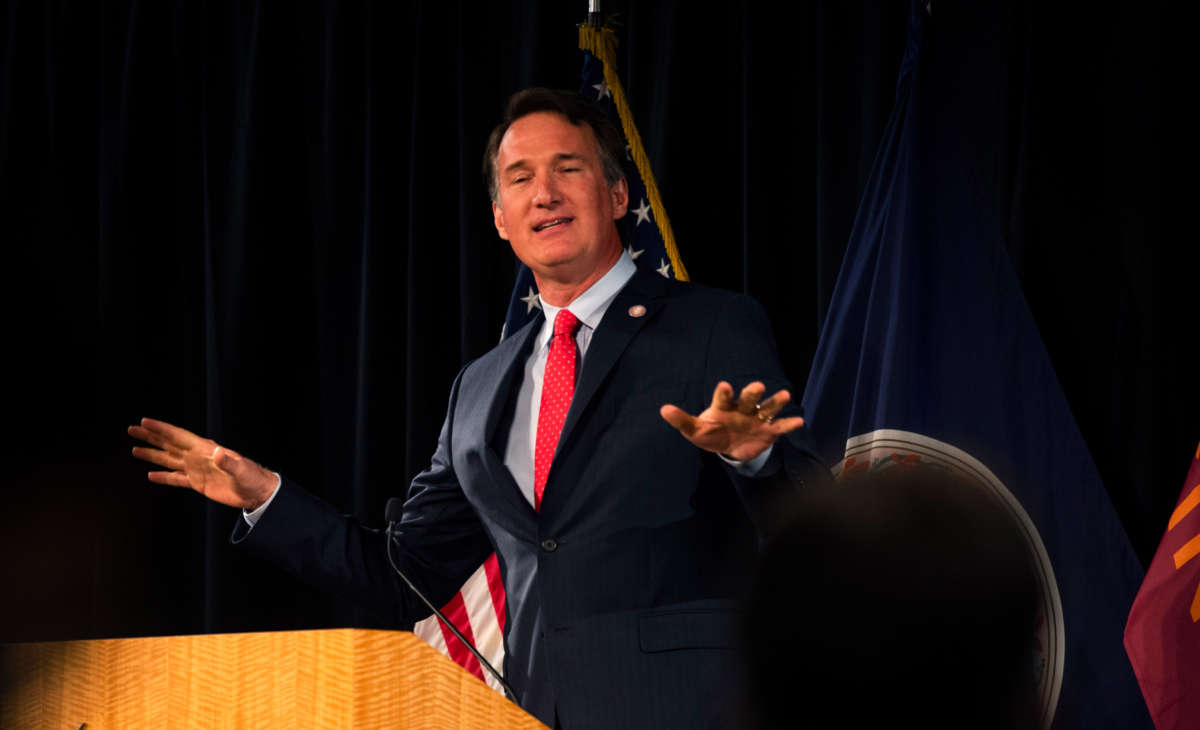This week, Virginia Republican Gov. Glenn Youngkin reiterated his goal of forcing teachers and school administrators to inform parents if their children are LGBTQ, under the banner of supporting so-called “parental rights.”
Youngkin’s comments have been condemned by education experts and LGBTQ advocates, who say that such a policy would intrude upon students’ privacy rights and endanger already vulnerable young people.
Currently, school districts in Virginia can make their own decisions on whether or not to inform parents about a child’s LGBTQ identity if it is shared with teachers or staff. Many districts have decided that such information shouldn’t be divulged without permission in order to protect students’ privacy rights and safety.
Last month, however, Youngkin appointed five new members to the State Board of Education, creating a conservative majority on the panel. On Tuesday, Youngkin spoke about policies the panel may choose to pursue — including requiring teachers to reveal personal information about students to their parents.
“With regards to informing parents with most important decisions about their children, I think everybody knows where I stand: parents matter,” Youngkin said. “I firmly believe that teachers and schools have an obligation to make sure that parents are well informed about what’s happening in their kids’ lives.”
Advocates condemned Youngkin’s comments as a threat to LGBTQ students across the state.
“No one should take this crucial discussion of ‘coming out’ away from the students and parents by ‘outing’ someone,” LGBTQ advocate Robert Rigby said. “It feels and is really intrusive and can be damaging to the parent/child relationship, sometimes permanently.”
Former state Delegate Jay Jones similarly blasted the idea, noting that Youngkin’s comments were especially hypocritical considering his faith.
“Imagine telling people you follow the teachings of Jesus — treating people with love and compassion — and then inducing immeasurable trauma on a child by forcing teachers to out them to their entire community,” Jones wrote on Twitter. “@GlennYoungkin’s idea of faith is hatred and persecution of children.”
Parenting experts agree that forcing children to disclose their sexual orientation or gender identity can be psychologically and physically harmful. Often, coming out to a teacher or a trusted school administrator is safer for a child who lives in a homophobic environment than coming out to their parents — and outing an LGBTQ youth can increase their chances of being abused or becoming homeless.
“Whether a student is coming out about their gender identity or sexual orientation at school, they are doing it because they likely feel safe and affirmed with those people, in that space,” wrote University of Colorado, Boulder, professor Elizabeth Meyer in a 2021 op-ed for Psychology Today. “It is also possible that they are not sure if they will be safe and affirmed if they come out in other spaces at school or at home. In some cases, they know quite clearly that they could be subject to violence, rejection, or even homelessness if their parents or guardians find out.”
Outing a child to a parent or guardian violates their privacy rights, Meyer said, including the Family Education Rights and Privacy Act (FERPA).
“Until a child is 18, parents do have the right to review any official records maintained by the school, but [under FERPA] schools must not divulge ‘identifying’ information to anyone without a ‘legitimate educational interest,'” Myers said.
“It is imperative that when a student comes out at school, we respect their choices about who to tell and when. This means it cannot be our decision about who to inform,” she went on.
Media that fights fascism
Truthout is funded almost entirely by readers — that’s why we can speak truth to power and cut against the mainstream narrative. But independent journalists at Truthout face mounting political repression under Trump.
We rely on your support to survive McCarthyist censorship. Please make a tax-deductible one-time or monthly donation.
